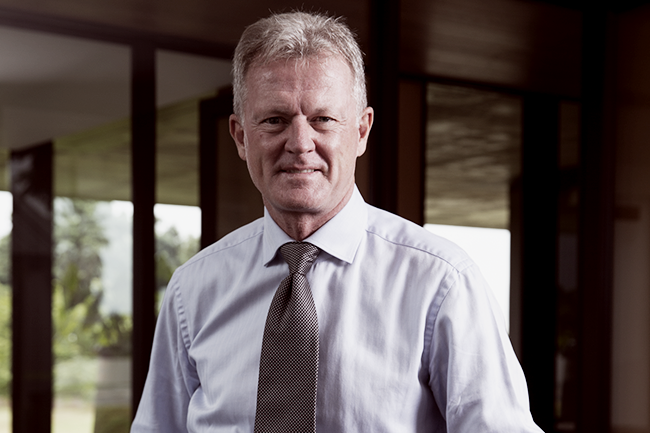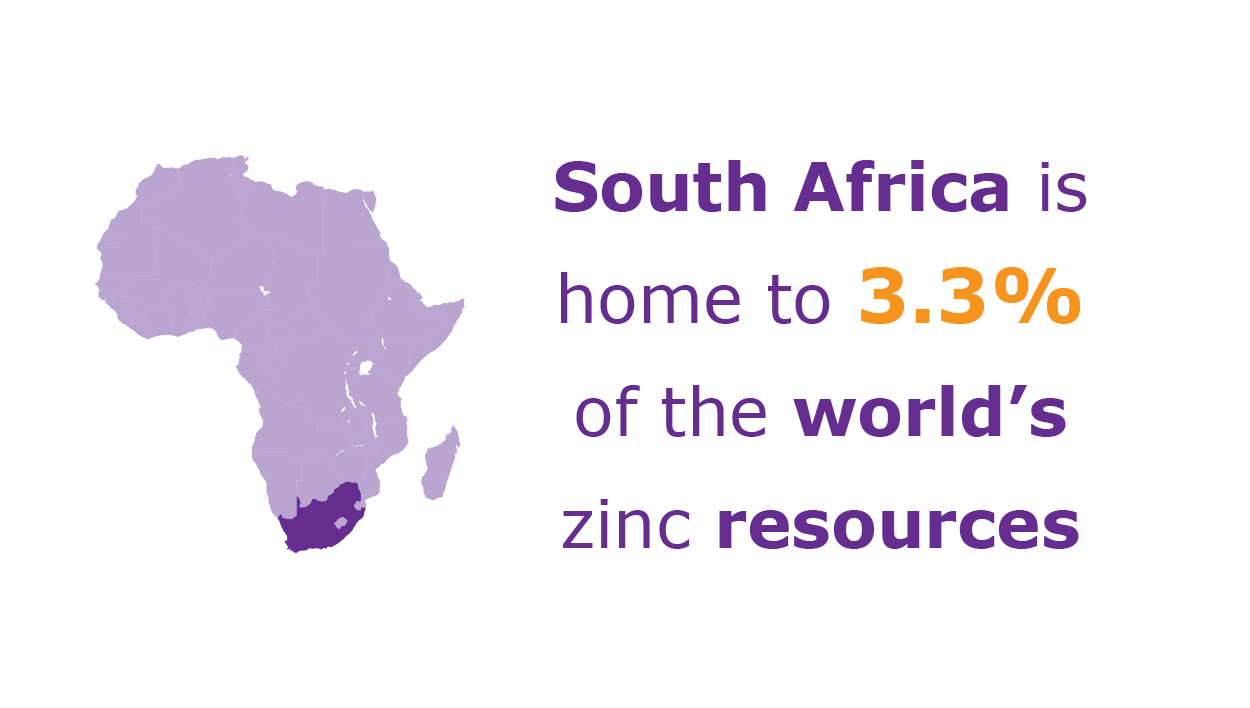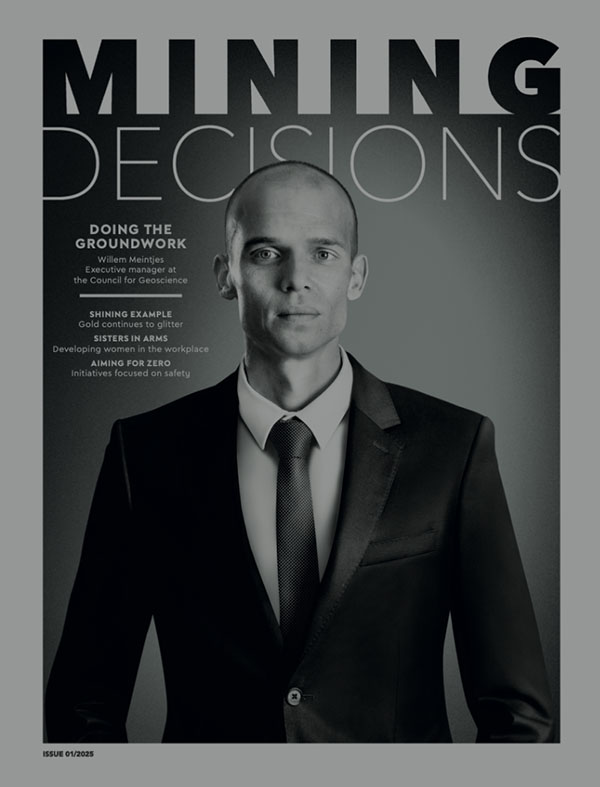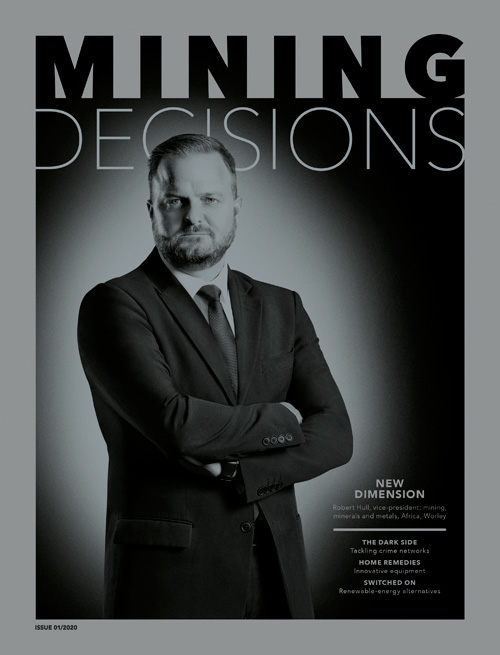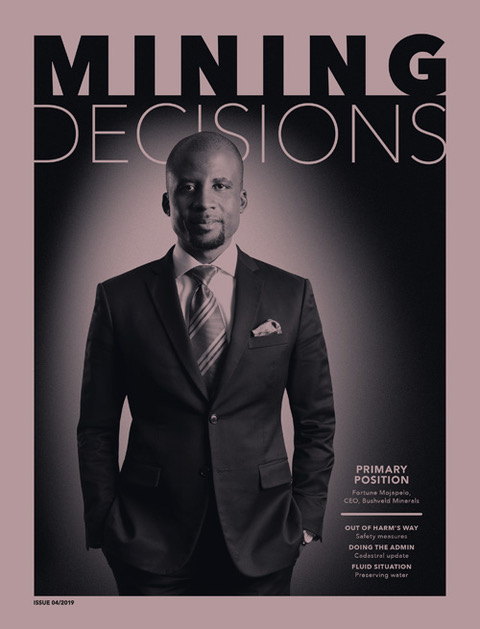It’s considered fairly difficult to secure an entrenched position within Africa’s mining sector. Among the factors in recent years that create this perception are fluctuating commodity prices, challenging mining environments, logistics expenses, high output and processing costs, and of course, COVID19. This has not, however, deterred Danoher Group, whose initial establishment in 1972 was focused on road-project contract crushing. Today it is an organisation that offers a much larger portfolio of services, inclusive of blast planning and management, drilling, blasting, materials handling and the mining and processing of minerals across an array of mining commodities.
Most recently it has acquired three aggregate quarries in Botswana, a brave move in an environment that CEO Scott Danoher describes as ‘fairly challenging market conditions with rising input and capital asset-owning costs, coupled with constrained available market rates’. Managing these types of risks, plus those traditionally associated with mining, is the differentiator, he adds.
‘We are not blind to the risks nor the opportunities,’ says Danoher. ‘We avoid over-exposure to a specific client, project, sector or commodity; instead selecting areas and avenues of growth carefully.’
The group’s growth strategy, for example, is a blend of contract mining and owning the resource, such as it has done with the acquisition of the aforementioned three Botswana mining operations in Gaborone and Francistown, which the Danoher Group acquired from a JSE-listed entity. Danoher says that the group also intends to make a further acquisition in Africa, focused on a niche mining operation – a clear indication that the company is open to new opportunities and diversification into different commodities, including those that would not be considered traditionally mainstream.
‘We select our exposure based on the customer profile and a specific evaluation of the project at hand,’ says Danoher. ‘In this market, diversification is key to mitigate macro-economic risks, sectoral and inter-sectoral ebb and flows.’
The ‘slightly cautious approach as opposed to an aggressive radical expansion’, as Danoher describes it, is demonstrated in the organisation’s current valuation of potential projects in Malawi, Zimbabwe and Zambia. ‘Our assessment is that these countries are reasonably stable currently, and present fairly viable opportunities.’
Balancing the scale of attractiveness is that Danoher’s value offering to the market is multifold. Firstly, it is a solutions-focused end-to-end business, which provides tailored solutions to meet client-specific requirements and problem-solving. Secondly, it works towards operational excellence across the organisation inclusive of support departments, which highlights its team mindset. ‘We understand that excelling with every contribution, regardless of the perception of size, collectively makes us a provider of choice,’ says Danoher.
Having full control of a project’s process is case in point. Be that from the first hole drilled and blasted, through material handling, to the delivery of the quality final product to the customer, Danoher is agile in extracting various minerals with differing applications. Over the past decade, the group has successfully executed more than 100 significant projects totalling some ZAR3 billion. One such project required the design and building of bespoke screening technology for a gold-mining operation, which enabled the effective blending of product on a continuous basis. ‘In this way we provide the client with feed material that optimises its gold recoveries through its downstream processing,’ says Danoher.
Another tailored solution required a plant design to ensure a variable mining source capable of producing consistent, high-specification, low-iron content silica products. ‘The successful design and installation of the plant not only meets our client’s specific needs but has also ensured long-term mine viability, as our client now taps into a new market and expands on their product offering.’
The embrace of technology supports the Danoher Group’s underlying reliability and track record. Within its vast fleet of crushing and screening equipment, for example, Danoher continues to invest in the latest technology – such as the Metso Lokotrack LT330 crushers – to improve thoughput, thereby lowering production costs.
‘This is significant in a market where input costs are spiking,’ according to Danoher. ‘These machines are equipped with hydraulic cylinders – allowing for quick set-up times – and are suitable for remote locations with access to electricity [preferred], given they are fully electrically driven with an integrated diesel engine capable of generating 500 kVA of power.’
Accurate weight monitoring is emphasised in the sector as crucial to mining and quarry success, which is why Danoher has also introduced belt-scale monitoring technology systems. ‘The data derived provides valuable real-time insight into the efficiency and profitability of our operations, which are driven by increased throughput, productivity and the lowering of input costs,’ he says.
Drones have also been introduced to effectively monitor and verify stockpile quantities, mine-development planning, 3D models, and health and safety aspects, such as up-to-date site layouts and traffic-management maps.
Furthermore, proving its leadership qualities around tech is the introduction of a cyclone washing plant, which Danoher has installed at its Bloemfontein plant in South Africa. This technology enables the commercial quarry to wash more effectively, conserving water and producing a fine-washed super sand that is unmatched in that market.
‘Tech is playing a pivotal role in our being able to reduce product throughput costs,’ according to Danoher. ‘Despite the soaring cost of capital equipment, being mostly euro and dollar denominated, the group has continued to invest in technology and optimise our fleet through traditional avenues. However, we have also deployed inventive local solutions.’
Current projects that are benefiting from Danoher’s tech and resources include some within the construction sector, which requires hard-rock sources – dolerite, granite, for example – and the processing of such for infrastructure projects across South Africa and Botswana. While mining and processing for construction is a sector that Danoher has penetrated over the years, diversified mining remains its core focus.
Impressive stats come from having supplied some 7 million tons of mill-feed material at a consistent production rate of 165 000 tons per month for one of the world’s largest gold producers. Danoher has also mined more than 6 million tons of silica, with two silica projects specifically having been extended beyond initial terms as a result of client satisfaction.
‘One of our silica-mining operations has a variable deposit that required a huge amount of collaboration, technical planning and execution to ensure a feasible long-term project. The natural in-situ characteristics of the mineral varies greatly at different levels, so we manage that to the finest detail, with bench sequencing as a key component to ensuring economically viable mining,’ he says.
‘The different benches of the deposit are capable of producing different products, and this has opened up different market sectors for our customer, with product-output variables available for use for glass manufacturing, metallurgical applications, and the construction- and civil-industry sectors.’
Danoher’s iron-ore processing is similarly opening Botswana up to new Asian export markets with its involvement in a start-up mine in Botswana. Here Danoher mines and processes high-grade iron ore (Fe >65%). These successes indicate that mining activities are increasing following the lifting of hard lockdowns of the COVID-19 pandemic, but as Danoher says, this increase is not linear with the recent commodity surge.
‘Commodity pricing has a dramatic impact on the business but is being managed closely. It is a delicate situation to manage risk of the commodity and our client selection on an ongoing basis, especially as we continue to diversify commodities and our client base,’ says Danoher. ‘However, it is not this that defines us, rather it is the manner in which we build and foster relationships with our employees, customers and suppliers, all of which are carefully constructed and considered to successfully navigate current and future challenges to ensure we stand the test of time.’

